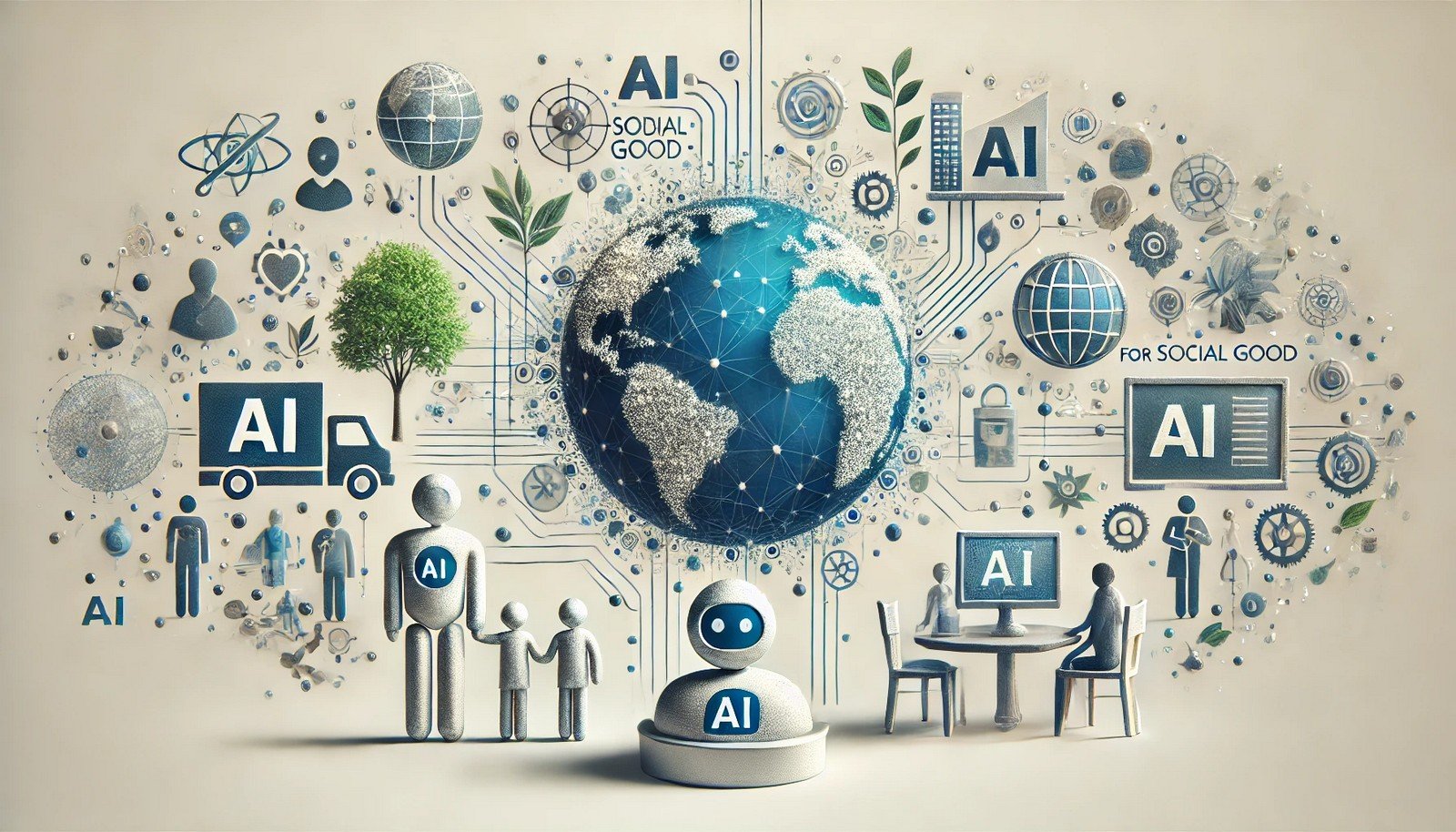AI for Social Good

Quick Navigation:
- AI for Social Good Definition
- AI for Social Good Explained Easy
- AI for Social Good Origin
- AI for Social Good Etymology
- AI for Social Good Usage Trends
- AI for Social Good Usage
- AI for Social Good Examples in Context
- AI for Social Good FAQ
- AI for Social Good Related Words
AI for Social Good Definition
AI for Social Good is the application of artificial intelligence technologies to address social challenges, improve societal well-being, and foster sustainable development. By leveraging AI’s analytical and predictive capabilities, this approach supports initiatives in healthcare, environmental sustainability, education, and poverty alleviation. AI for Social Good emphasizes responsible AI usage that benefits communities and addresses pressing global issues, creating pathways for impactful social change.
AI for Social Good Explained Easy
Imagine you have a magical helper that can look at big problems like sickness, pollution, or hunger and suggest solutions. AI for Social Good is like this helper, but it’s real! It uses smart machines to find ways to make people’s lives better and solve big challenges in the world.
AI for Social Good Origin
The concept of using technology for humanitarian purposes dates back to the early stages of computing, but the formal idea of "AI for Social Good" emerged in the late 2000s. As AI capabilities expanded, organizations and researchers recognized its potential to impact issues like disaster response, healthcare access, and environmental preservation. This movement was reinforced by academic, corporate, and nonprofit groups interested in harnessing AI to promote societal welfare.
AI for Social Good Etymology
The term combines "AI" and "Social Good," reflecting the use of AI not merely for innovation but as a force for positive social impact, bridging technology with humanitarian goals.
AI for Social Good Usage Trends
Interest in AI for Social Good has surged over the past decade as the ethical and societal implications of AI have gained attention. Many sectors, including healthcare, education, and environmental management, integrate AI solutions to address critical issues. Nonprofits, governments, and corporations alike are investing in AI-driven projects aimed at promoting inclusivity, improving public health, and tackling climate change.
AI for Social Good Usage
- Formal/Technical Tagging:
- AI for Good
- Responsible AI
- Humanitarian AI - Typical Collocations:
- "AI-driven social impact"
- "ethical AI practices"
- "AI for humanitarian relief"
- "AI in public health"
AI for Social Good Examples in Context
- AI algorithms help detect early signs of diseases in regions with limited access to healthcare.
- In disaster relief, AI analyzes satellite images to assist first responders in finding affected areas more quickly.
- Machine learning models predict crop yields, helping farmers plan better and reduce food scarcity.
AI for Social Good FAQ
- What is AI for Social Good?
AI for Social Good refers to the use of AI technology to address societal issues and improve quality of life. - How does AI for Social Good impact healthcare?
It enhances healthcare by aiding in diagnosis, treatment planning, and predicting disease outbreaks. - Can AI help with climate change?
Yes, AI can analyze climate data, model environmental trends, and suggest sustainable practices. - Why is AI for Social Good important?
It prioritizes ethical AI use, focusing on real-world benefits and helping communities in need. - What are examples of AI for Social Good?
Applications include disease diagnosis, disaster response, and sustainable agriculture. - Are there risks associated with AI for Social Good?
Yes, such as data privacy issues and potential misuse, making responsible AI practices essential. - Who supports AI for Social Good initiatives?
Governments, nonprofits, academia, and tech companies lead many of these initiatives. - How does AI for Social Good benefit education?
AI enables personalized learning, helping students based on their unique needs and learning pace. - What challenges does AI for Social Good face?
Challenges include data bias, accessibility, and ensuring transparency in AI models. - Is AI for Social Good effective in poverty reduction?
Yes, by optimizing resource distribution and providing data-driven insights into economic disparities.
AI for Social Good Related Words
- Categories/Topics:
- Responsible AI
- Humanitarian Technology
- Ethics in AI
- Sustainable Development
Did you know?
In 2021, a breakthrough AI tool helped map earthquake-prone areas globally, enabling better preparedness in vulnerable regions. This tool demonstrated how AI could contribute to disaster prevention and societal resilience.
PicDictionary.com is an online dictionary in pictures. If you have questions or suggestions, please reach out to us on WhatsApp or Twitter.Authors | Arjun Vishnu | @ArjunAndVishnu

I am Vishnu. I like AI, Linux, Single Board Computers, and Cloud Computing. I create the web & video content, and I also write for popular websites.
My younger brother, Arjun handles image & video editing. Together, we run a YouTube Channel that's focused on reviewing gadgets and explaining technology.



Comments powered by CComment